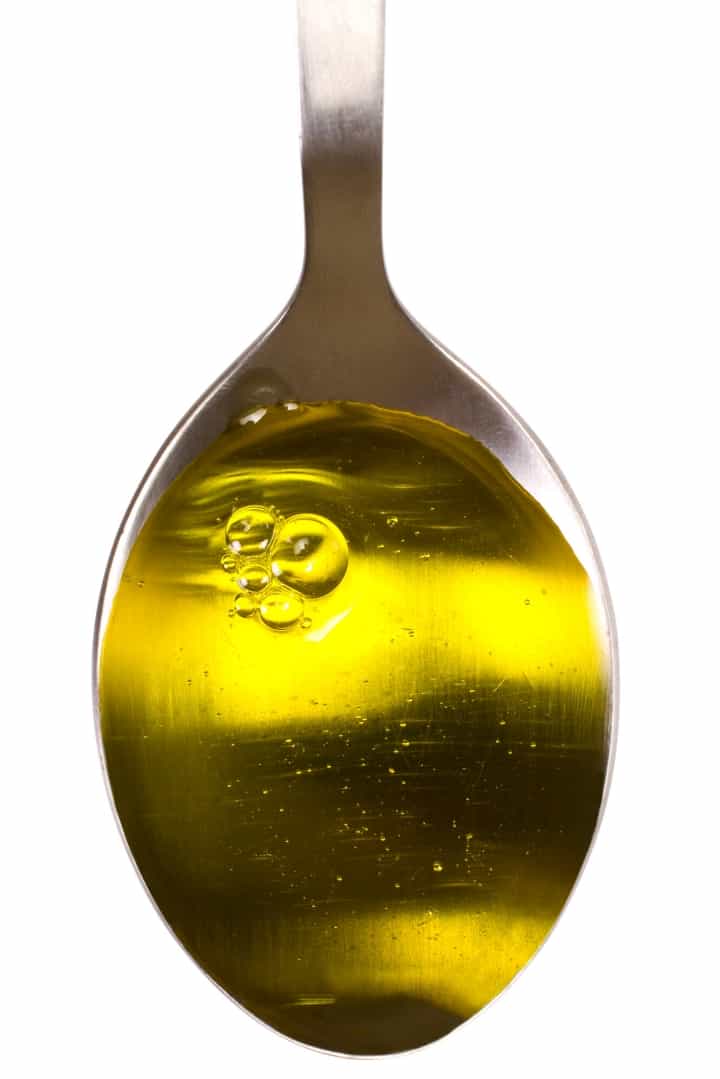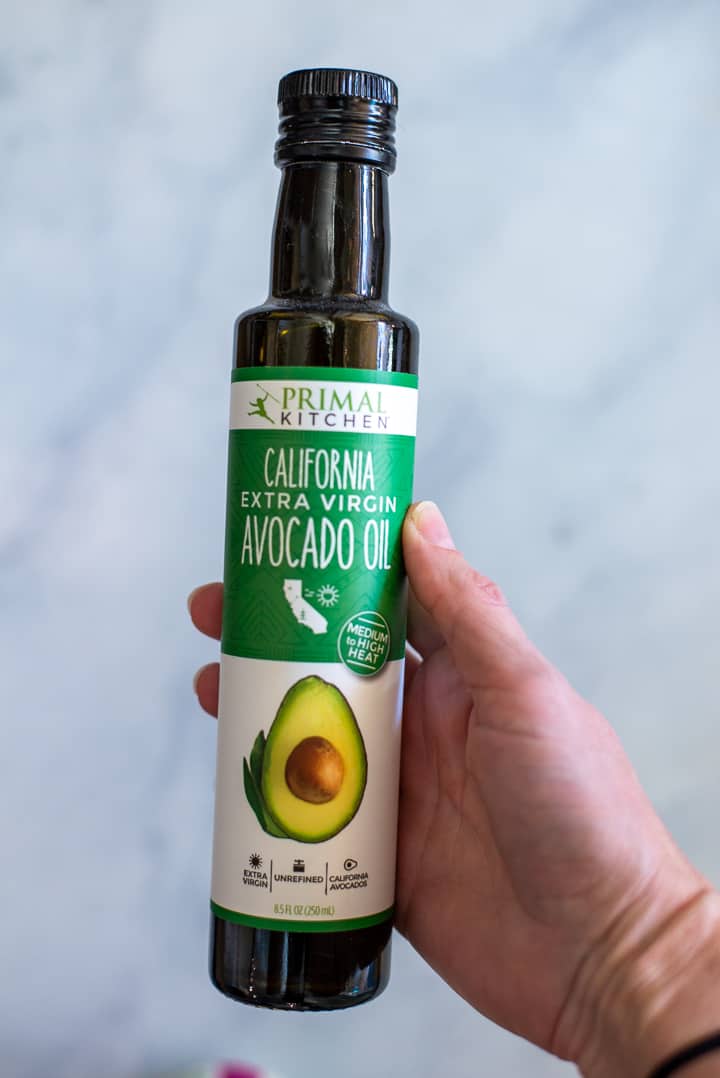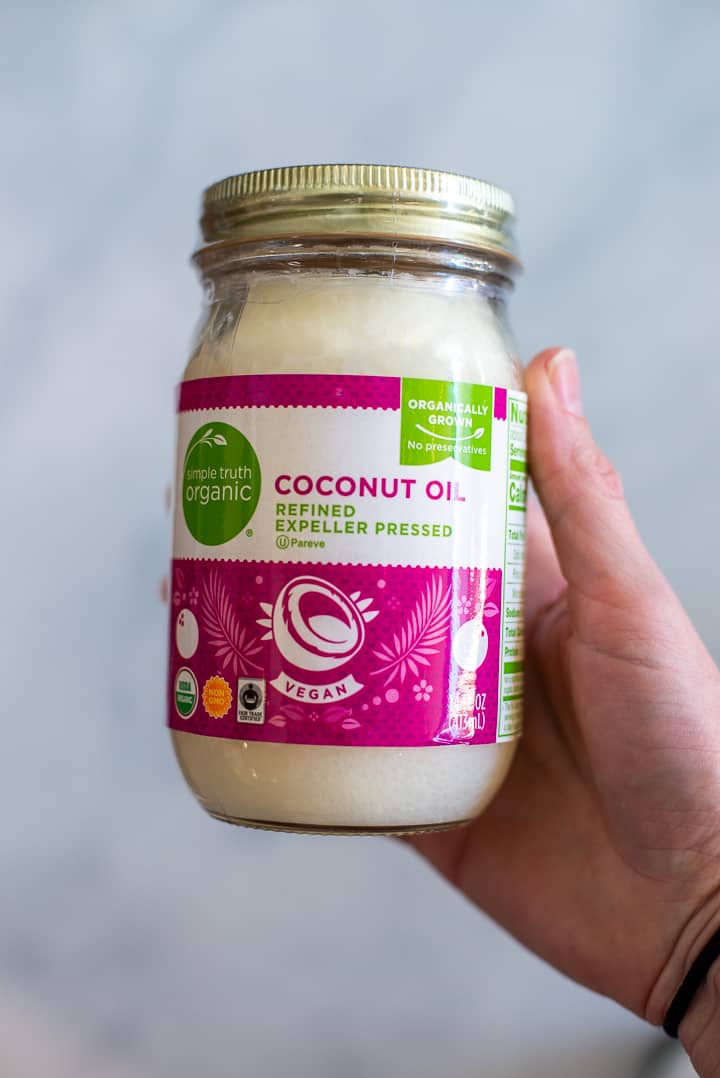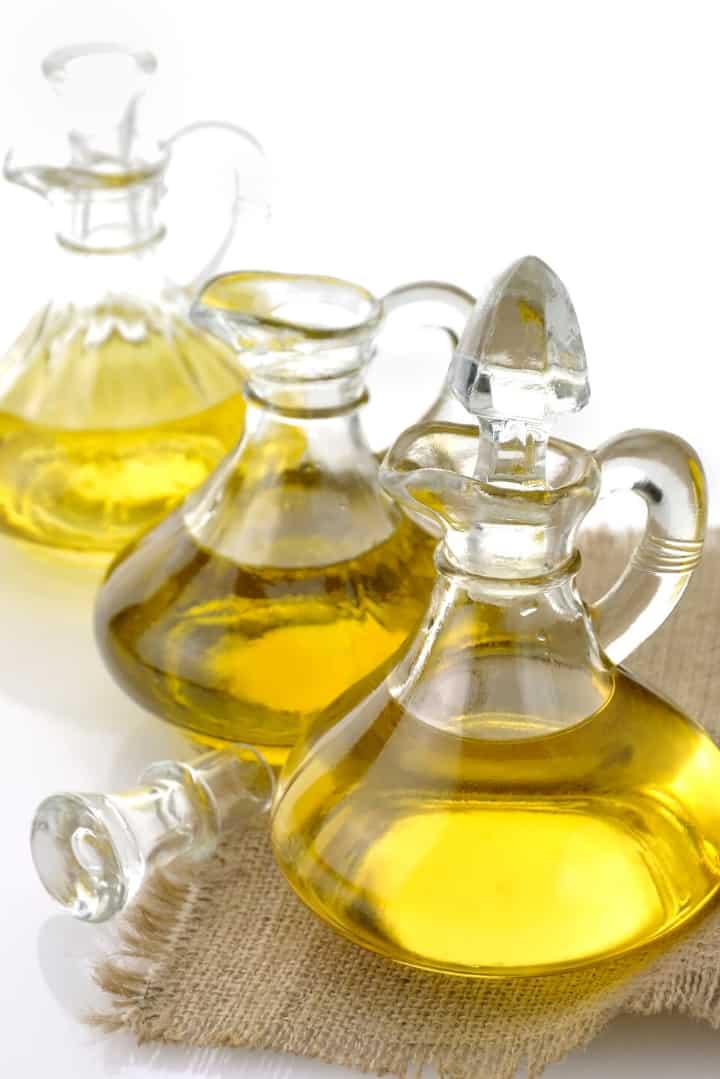Is sunflower oil a healthy oil option you should keep in your pantry? This article discusses whether sunflower oil is healthy, and if it should be included in your healthy lifestyle.
Being in the kitchen a lot, I get to use many different products. Whether I’m baking muffins, sautéeing veggies, or cooking a yummy chicken dinner, I use a ton of ingredients. And that includes oils for cooking.
Plenty of options are out there on the grocery shelves, ready for you to drizzle, marinade, and bake with. Sometimes it can be overwhelming—the information puts your grocery shopping brain on overload!
A good example is sunflower oil. Sunflower oil is a commonly used cooking oil and there are varying views as to whether it’s good for you or not.
Some say it’s a healthy fat, while others state that it’s not that healthy and may even be inflammatory. We all know that inflammation is bad for you and it’s one thing that you want to avoid.
Let’s take a look at sunflower oil and delve into whether sunflower oil is healthy or not.
WHAT IS SUNFLOWER OIL?
Sunflower oil is produced from sunflower seeds. We’ve all seen sunflower seeds in the snack aisle and they are quite nutritional, containing nutrients like Vitamin B6, niacin, and folate. They are super packed with Vitamin E, which is great for your immunity.
Sunflower oil, however, is processed and this removes much of the nutritional content. The refining removes some of the beneficial Vitamin E and polyphenols. Sunflower oil is stable for high-temperature cooking and has a high smoke point, but this can release compounds that are potentially toxic (more so than other plant-based oils).
In the United States, there are 4 types of sunflower oil. They are all produced from seeds bred to have varying fatty compositions:
- High linoleic: This is a sunflower oil commonly known as omega-6 and is liquid at room temperature. When using this oil, it’s important to balance out your omega 3s by adding omega 3-rich foods to your diet, such as fatty fish like salmon.
- Mid-oleic: This sunflower oil is also called Nu-Sun and is lower in saturated fat. It is often used for salad dressings and stir-frying.
- High oleic: This sunflower oil is very high in oleic (monounsaturated) acids which are said to raise HDL (good cholesterol). They are said to be better because the amount of omega-3s is higher than the omega 6s.
- High stearic/high oleic: Sunflower oil with this description contains stearic acid, a saturated fatty acid that is solid at room temperature.

IS SUNFLOWER OIL HEALTHY?
If you use sunflower oil in moderation and in conjunction with other healthier oils like avocado, olive, and coconut oils, you can use it as part of a healthy lifestyle. Sunflower oil is not one of the worst oils out there, but it is not one of the best, either.
I’ll compare sunflower oil to other oils later on in the post so you can get a better picture of how it stands up versus other healthy oils.
Studies on sunflower oil show that it is high in Vitamin E. In fact, sunflower oil is one of the richest sources of this good-for-you vitamin. However, to best benefit from Vitamin E, eating oil-roasted sunflower seeds is the way to go. Topping your salad with sunflower seeds instead of croutons is a good example.
Still, in moderation, it is okay to use sunflower oil.
In a nutshell, the scoop on sunflower oil is:
- One tablespoon of sunflower oil boosts your daily intake of Vitamin E
- Sunflower oil has a neutral flavor so can be used in dressings for salads, among other healthy recipes
- The omega-6 fatty acids found in sunflower oil are thought to be pro-inflammatory
- If using sunflower oil, be sure to balance it with other healthy oils

IS SUNFLOWER OIL BAD FOR YOU?
Sunflower oil is thought to have some negative points if you are not careful to balance out its use with other healthy oils like olive oil and avocado oil. So, although we just discussed that sunflower oil can be healthy, we’ve got to look at a few other things, too.
Mid-oleic sunflower oil (known as NuSun as mentioned above) is classified as heart-healthy because with the increase in good monounsaturated fats, there is protection against coronary heart disease.
But too much linoleic acid (particularly in a high linoleic oil) can lead to inflammation. If necessary omega-3s are not eaten, there is no balance and that is where the problem lies. Omega-3 foods to keep on hand are tuna, sardines, flaxseed, chia seeds, and Greek yogurt, to name a few.
One important thing to keep in mind with sunflower oil is oxidation and aldehydes. Aldehydes are potentially toxic compounds released when some oils are heated. Sunflower oil has a high smoke point so is used in high heat cooking (such as deep-frying).
Sunflower oil emits the highest amount of aldehydes into the fumes produced when cooking it at high heat, compared to other plant-based oils. More aldehydes are produced the longer the sunflower is exposed to the high heat. Aldehydes are known to cause health conditions like diabetes and Alzheimer’s disease.
Besides the fumes, there is the issue with consuming too many oxidized lipids because it leads to artery-clogging and inflammation.
IS SUNFLOWER OIL BAD FOR CHOLESTEROL?
I would not say that sunflower oil is bad for cholesterol. (Processed meats and fried foods are two examples of foods bad for your cholesterol.)
A study on the dietary fats in the form of canola oil and sunflower oil determined that these oils lowered the LDL (bad) cholesterol and increased HDL (good) cholesterol.
Keep in mind as well, that when you replace other fats like lard, for example, with sunflower oil when cooking and baking, you are choosing a healthier alternative and helping your cholesterol.
One important thing to note, though. When using high linoleic sunflower oil, this omega-6 fatty acid may speed up the progression of heart disease. So combine the use of sunflower oil with healthy habits. Exercise regularly, eat a non-inflammatory diet, and follow other simple practices, such as packing your plate with veggies.

SUNFLOWER OIL VERSUS OTHER OILS
It’s always best to have alternative oils to use alongside sunflower oil. And it doesn’t hurt on occasion to choose a healthy oil substitute when baking, either.
Okay, let’s take a brief look at what we know about sunflower oil and its possible benefits.
- Sunflower oil contains Vitamin E
- Sunflower oil does not have sodium or carbohydrates
- High oleic sunflower oil may increase good LDL cholesterol
It can be overwhelming trying to choose the best oil. Every oil has a different taste and some work best in baking while others are suited to salad dressings. Let’s take a look:
Canola oil
- Canola oil has Vitamin E, but much less than sunflower oil
- Canola oil is low in saturated fat
- Canola oil has polyunsaturated omega-3s
- Canola oil may increase glucose tolerance and insulin sensitivity among other benefits, making it comparable to sunflower oil

Avocado oil
- Avocado oil has monounsaturated fats
- Avocado oil is considered heart-healthy
- Avocado oil has antioxidants
- This healthy-for-you oil passes the goodness of avocados along when used
Grapeseed oil
- Grapeseed oil is high in omega-6s and may cause inflammation
- Eating omega-6s in moderation is fine when you include nuts and fish in your diet
- Grapeseed oil is a healthy alternative to shortening or lard when baking
- Sunflower oil and grapeseed oil are comparable
Olive oil
- Olive oil is rich in polyphenols, known to reduce the progress of cardiovascular disease and cancer
- Olive oil may reduce beta-amyloid plaques related to diseases like Alzheimer’s
- Olive oil has antibacterial properties
- Olive oil is the top choice out there for healthy oils

Coconut oil
- Coconut oil raises both good and bad cholesterol
- Using organic, virgin coconut oil is ideal
- When used in moderation, coconut oil is comparable health-wise to sunflower oil (used in moderation as well)
Flaxseed oil
- Flaxseed oil is an excellent choice for dressings
- Flaxseeds have a ton of benefits
- Flaxseed oil is considered very heart-healthy
- It's a better choice than sunflower oil
In summary, if you're using sunflower oil in moderation and as part of a healthy lifestyle, verses relying entirely on it for your oil consumption, it is okay to use sunflower oil.
This post contains affiliate links for products I use regularly and highly recommend.



Comments
No Comments